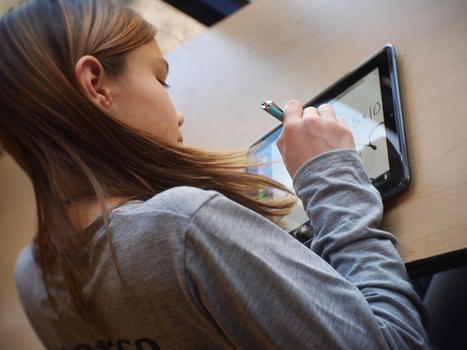At some point in our lives, we’ve all practiced some counterproductive learning habits. We’ve sabotaged ourselves without realizing it, and found ourselves stuck. There have been failures we believe have defined our potential. We’ve obsessed over perfect solutions and singular pathways. In frustrated moments we’ve refused help from others, thinking acceptance means weakness. We’ve done this as teachers, students, friends, and parents.
These are not crimes; they’re part of what makes us human. Our counterproductive learning habits usually come from what we observe and hear. We pick things up as children from well-intentioned adults in our lives. In addition, the experiences of others constantly unfold right in front of us. We observe actively, and we remember.
Eventually we come to believe that what we see is how things are, and that it never changes. We know now that this doesn’t have to be the case. We know now that we can create our own experiences. Let’s make them good ones when it comes to learning.
Leartn more / En savoir plus / Mehr erfahren:
Via Gust MEES



 Your new post is loading...
Your new post is loading...









These are not crimes; they’re part of what makes us human. Our counterproductive learning habits usually come from what we observe and hear. We pick things up as children from well-intentioned adults in our lives. In addition, the experiences of others constantly unfold right in front of us. We observe actively, and we remember.
Eventually we come to believe that what we see is how things are, and that it never changes. We know now that this doesn’t have to be the case. We know now that we can create our own experiences. Let’s make them good ones when it comes to learning.
Leartn more / En savoir plus / Mehr erfahren:
https://gustmees.wordpress.com/2015/07/19/learning-path-for-professional-21st-century-learning-by-ict-practice/
These are not crimes; they’re part of what makes us human. Our counterproductive learning habits usually come from what we observe and hear. We pick things up as children from well-intentioned adults in our lives. In addition, the experiences of others constantly unfold right in front of us. We observe actively, and we remember.
Eventually we come to believe that what we see is how things are, and that it never changes. We know now that this doesn’t have to be the case. We know now that we can create our own experiences. Let’s make them good ones when it comes to learning.
Leartn more / En savoir plus / Mehr erfahren:
https://gustmees.wordpress.com/2015/07/19/learning-path-for-professional-21st-century-learning-by-ict-practice/
These are not crimes; they’re part of what makes us human. Our counterproductive learning habits usually come from what we observe and hear. We pick things up as children from well-intentioned adults in our lives. In addition, the experiences of others constantly unfold right in front of us. We observe actively, and we remember.
Eventually we come to believe that what we see is how things are, and that it never changes. We know now that this doesn’t have to be the case. We know now that we can create our own experiences. Let’s make them good ones when it comes to learning.
Leartn more / En savoir plus / Mehr erfahren:
https://gustmees.wordpress.com/2015/07/19/learning-path-for-professional-21st-century-learning-by-ict-practice/